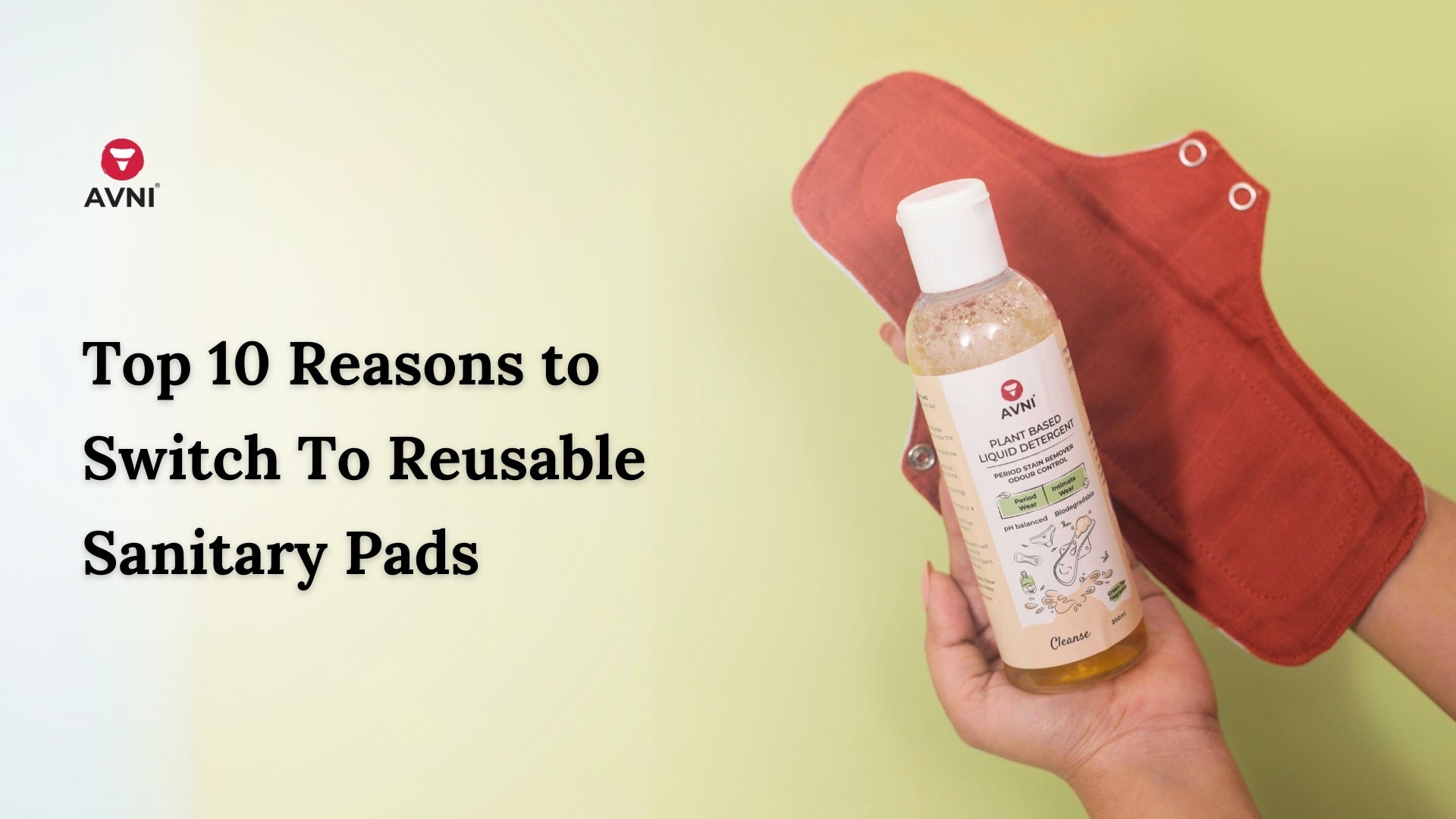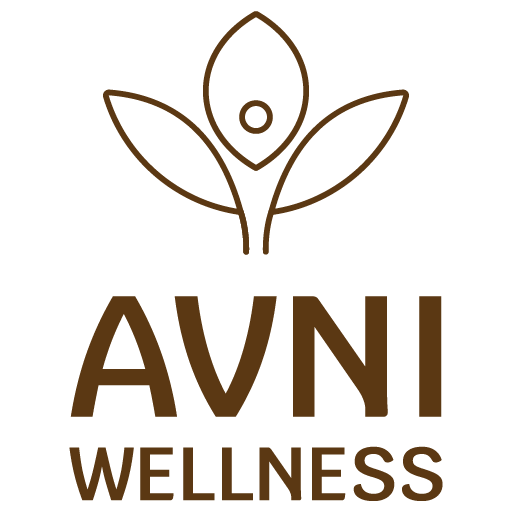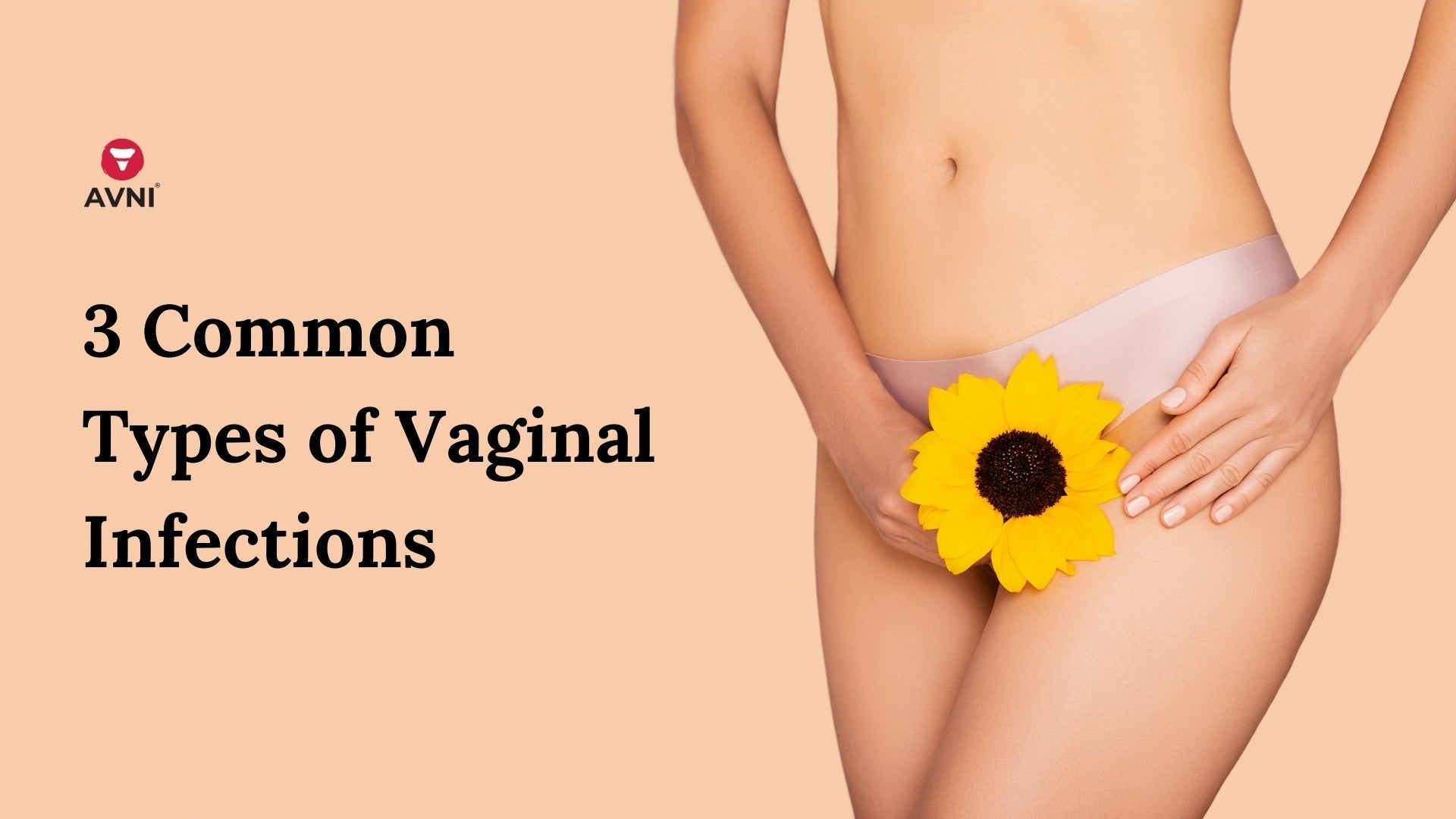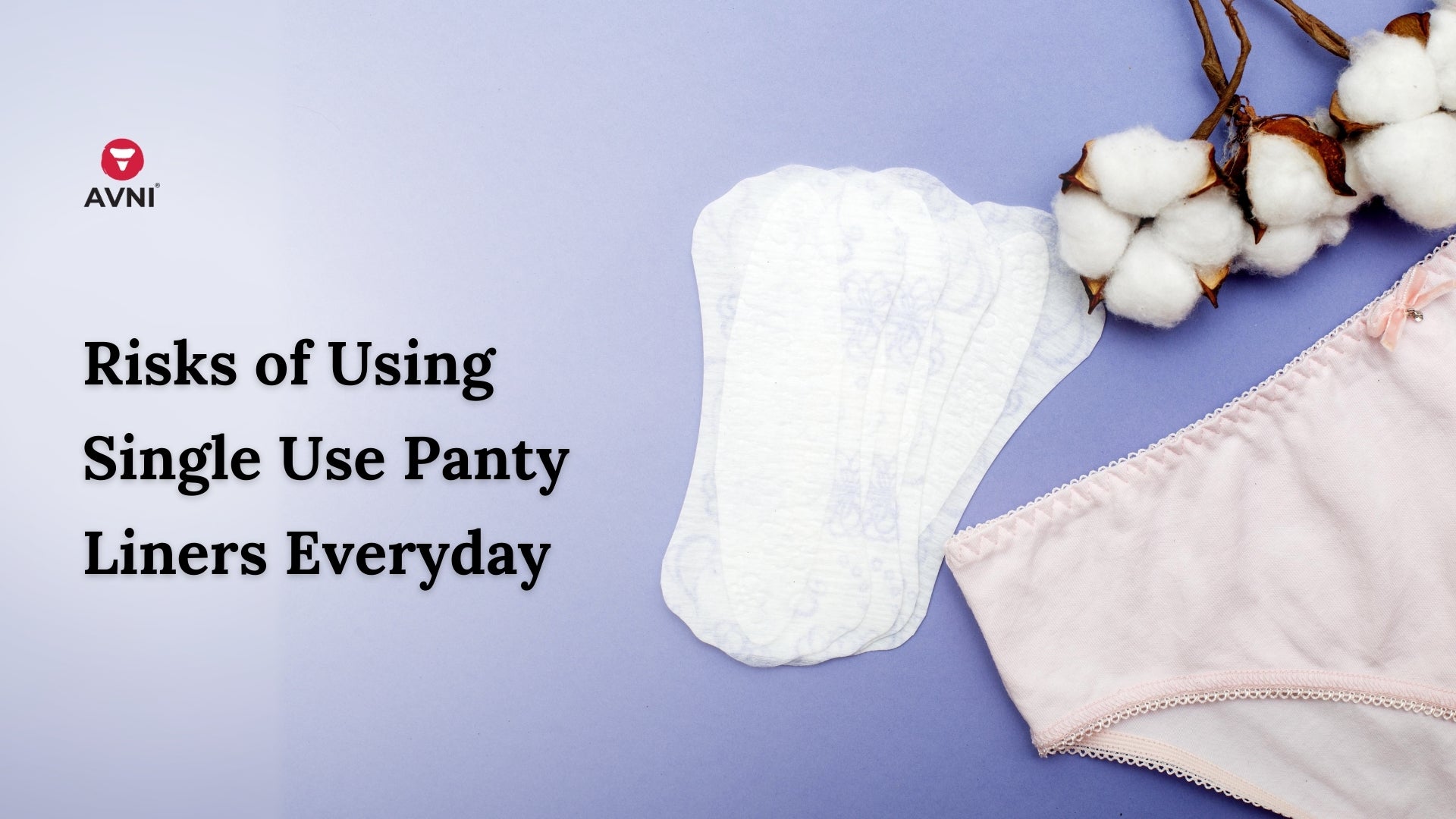
Top 10 Reasons to Switch To Reusable Sanitary Pads
Don't you just hate buying those expensive monthly sanitary pads?
Let's face it. For the most part, we've always used sanitary pads that are thrown in the trash can afterward. This can be quite a waste of money and damage the environment. Alternative reusable sanitary pad brands like My Avni are now emerging on local independent marketplaces that allow you to cut costs and protect the planet at the same time! With the rising awareness about how bad chemical-infused disposable sanitary pads are, more and more people are hopping on the reusable pad bandwagon. Keep reading this article to know more on the Top 10 reasons to switch to reusable sanitary pads!
What are reusable sanitary pads?
Let’s cover the basics first. You need to know what reusable sanitary pads are and what they are made of before getting to know the benefits of this big switch.
Reusable menstrual pads are cloth pads that can be washed and used for several cycles. They could sustain from five to eight hours depending on how heavy your flow is. You need to give your period pad a good wash and remove every trace of blood before reusing it. Cloth pads have several layers of cotton or hemp, but not plastic—unlike disposable pads.
You can dry reusable pads under the sun and naturally disinfect them. Pads can also be hung outside or in an airy place if sun-drying is not an option.

The bottom of reusable pads like Avni Fluff has been scientifically tested for leakages. They are especially designed for first-time cloth users. These comfy pads have been engineered with stain-proof fabric, ultra-absorbent core, and are tested for antibacterial activity.
Let's now take a closer look at the top 10 benefits of reusable sanitary pads.
#1 You Save Money By Wearing Reusable Sanitary Pads
Did you know that you can save as much as Rs.80,000 in a lifetime by making the switch from disposable sanitary products to reusable ones? That's a lot of money being saved and ending up in landfills. Reusable sanitary pads cost Rs. 35 per pad (that could be reused as the name suggests) compared to Rs. 12 for disposable pads and tampons.
This is also applicable to women in situations where they can't afford to buy disposable pads and tampons every month. People can pick reusable cloth pads that will last longer and cost less in the long run in such circumstances.
Considering you will be bleeding on command until menopause—there really is no time like the present to ditch the unnatural ways and start saving that money now.

#2 Reusable Sanitary Pads Are Customisable
Cloth pads come in a wide array of absorbing capacity levels. Cloth pads are not only produced by larger companies but there is also a burgeoning market of home-makers—many of whom are willing to hand sew customized pads to fit the customer's requirements.
While the underlying purpose of menstruation products remains the same—to absorb blood during a female's menstrual cycle—there is no reason why these products cannot be fashionable and fun. You can find so many different styles, colors, shapes, and designs for reusable sanitary pads that you'll be spoilt for choice.
#3 Reusable Sanitary Pads Can Save Environment
Think back to when you started menstruating. Now, count the years since then until the present day. Now, do the math: How many disposable pads have you might have used in your lifetime?
Here is the answer…a menstruating person uses about 15,000 disposable products in their lifetime. The time it takes a tampon or pad to decompose in a landfill is longer than the lifespan of the person who used them. And that’s scary when you consider that these pads will exist for around 500 years.
As if that weren't bad enough—the pads that don't end up in landfills often wash up on our beautiful beaches.
The Marine Conservation Society cleaned up 96.7km of the UK coast-line in 2013. They gathered 428 tampons and tampon applicators for each 4.4km along with 1291 sanitary pads, backing strips, and panty liners per 13.3km!
There is also the issue that the manufacturing of disposable pads requires a great deal of resources and chemicals. It's the right time to change your relationship with your period. Switch to reusable sanitary pads here!
#4 Reusable Pads Are Great For Skin Health
Cloth pads can be used by those with sensitive skin or prone to irritation since they are made from recognizable fabrics. Period panties and cloth pads are made of soft and breathable cotton that allows air to circulate freely around your nether regions.
Cloth pads also keep these areas moisturized, unlike regular tampons and pads that suck all moisture from the vagina, leaving it dry and susceptible to vaginal infections.
#5 Provide a greater sense of comfort
A person’s need for a fresh pair of sanitary towels after every four to six hours varies with how much the bleeding is. If you plan on spending hours wearing something between your legs, it might as well make it comfortable. Cloth pads are made of cotton and are gentle on your most delicate parts.
#6 Reusable Sanitary Pads Are Like Jell-O
It's hard enough to walk around in costume without having to worry about the disposable pads you've shoved up your costume. The last thing you want to be thinking about is how awkwardly wedged they are and that everyone else can see how far they extend.
Cloth pads are like Jell-O. When you're trying to fit them into a costume and make it look natural, that's when you find out just how flexible they really are. You'll find that they bend and move with your body so that you hardly notice them there at all.
#7 Easier to clean than you think
Reusable cloth pads are easy to wash after use. Just soak them for 10 mins and give a cold water rinse with a mild detergent! Don’t use hot water as it sets in stains. It is best to rinse off your pads immediately after removal if you are near your bathroom. You must soak them in cold water if they have any stains.
#8 Reusable pads are 100% sterile
The path that disposable pads and tampons take from the factory to the store is not a sterile one. You wouldn't want to expose the most sensitive part of your body to something you couldn't trust. While reusable pads have to be sterile as a mandate because they have to go through standard checks to be on the market.
The microbiological findings of a recent study were based on the results of two cycles of use of reusable cloth pads by 50 women. This was done by collecting vaginal swabs. The test showed a decline in vaginal microbial growth of 38% and displayed no pathological growth on the vaginal swab culture. Whereas, there was an unbelievable amount of pathological growth in swab cultures that were collected from another batch of 50 women who were already using disposable pads.
#9 Less chemicals, More peace of mind
Disposable pads are the equivalent of mini chemical labs. You probably know about the fragrance chemicals used to mask your period odor. But what about the other types of ingredients? They can cause serious health issues in the long run, including various types of hormone disruptions, cancer, infertility, and Toxic Shock Syndrome (TSS).
Whereas, reusable pads give you a guarantee of being toxin-free.
#10 Outperforms disposable pads
Reusable pads perform better and feel more comfortable than disposable pads. You can breathe a sigh of relief (and put an end to the shock caused by an errant adhesive strip) with reusable menstrual pads that are soft, lovely, and don't have sticky wings. Forget about having rough pads against your skin with Avni Hygiene's—reusable pads made from graded soft and gentle fabric.



Leave a comment
This site is protected by hCaptcha and the hCaptcha Privacy Policy and Terms of Service apply.